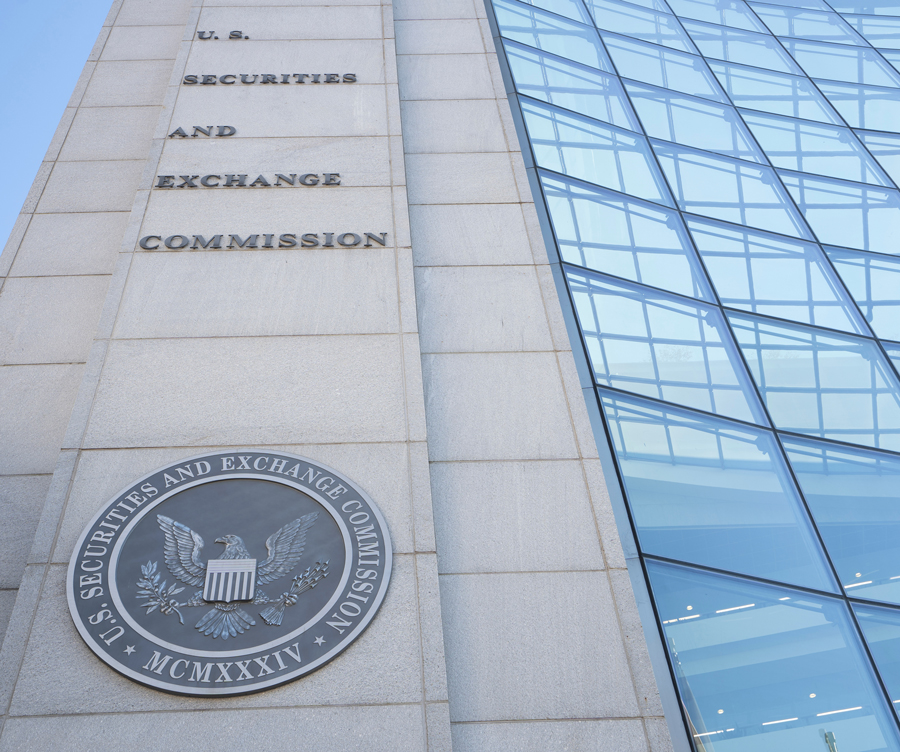Almost the entire reserves of a purported stablecoin have been invested in an undisclosed trade finance fund, the US markets regulator has alleged.
The Securities and Exchange Commission (SEC) on September 24 announced a settlement with two US companies, TrueCoin LLC and TrustToken Inc, which offered the TrueUSD (TUSD) stablecoin between 2020 and 2023.
TrueCoin and TrustToken agreed to settle the regulator’s charges of offering unregistered securities and violating of anti-fraud provisions of the Securities Act. Instead of taking the allegations to trial, both companies consented to paying combined fines and disgorgement totaling US$700,000, without admitting or denying the SEC’s allegations.
Stablecoins are designed to avoid the volatility of other cryptocurrencies by being pegged to a fiat currency or commodity. TUSD – which was reported by Bloomberg to be the world’s fifth-largest stablecoin as recently as January this year – was supposed to be backed one-to-one by US dollars held in reserve.
But as of September 2024, “more than 99%” of TUSD’s reserves are invested in what the SEC’s complaint describes as a “speculative and risky” trade finance fund.
The fund – the location and management of which is not provided in the complaint – “purportedly invested in trade finance, structured trade, export finance, import finance, supply chain financing, and project financing,” the SEC said.
Almost all the reserves for the currency are managed by Hong Kong trust provider First Digital Trust Limited, according to the SEC complaint and daily transparency reports on the TUSD website.
First Digital currently holds US$501.8mn of the US$502.9mn of reserves backing up the currency, the October 1 transparency report shows.
According to the SEC complaint, the companies started investing TUSD reserves in the fund in early 2020, on the recommendation of an unnamed Hong Kong investment adviser. First Digital, which launched its own stablecoin last June, did not respond to written questions from GTR.
The fund only allowed quarterly redemptions, which the SEC claimed was at odds with TUSD’s transparency reports that stated the reserves were deployed in “short-term, highly liquid investments of sufficient credit quality that are readily convertible to known amounts of cash”.
By mid-to-late 2022, TrueCoin and TrustToken had become aware of “redemption problems” at the trade finance fund, which the SEC alleges raised the question of whether the investment in the fund was impaired and would, in turn, impact TUSD’s ability to meet redemption demands.
“Yet TrueCoin and TrustToken continued to make false statements casting TUSD as backed dollar-for-dollar while making material misstatements omitting material information regarding the redemption issues at the [fund],” according to the SEC complaint.
In 2020, TrueCoin and TrustToken sold TUSD to Techteryx, described by a TUSD representative as an “Asian conglomerate”.
But the US companies continued to be involved in managing the stablecoin until July 13 last year, when Techteryx assumed full management of the currency, according to a post on TUSD’s X account.
In October 2022, a representative of Techteryx, unnamed by the SEC, wrote to First Digital’s investment adviser complaining about delayed redemptions from the fund.
“At this stage we should have received nearly another [US$]150m [from the fund] as per the original discussion from last year,” they wrote, adding: “This is not a little longer than the 90 days you promised me which is so disappointing”.
Despite the apparent problems with the fund, the transparency reports continued to characterise TUSD as “100% collateralised” until at least May 2023, at which point around a quarter of the reserves were invested in the trade finance fund, the SEC alleged.
“The defendants knew or should have known that these statements were false and misleading,” the SEC said. “Reasonable investors would have wanted to know that TUSD was not, in fact, ‘fully collateralised’ because TUSD reserves were invested in the risky [trade finance] fund.”
The TUSD transparency reports now discloses: “The Hong Kong depository institution also invests in other instruments to generate yield, which are made up of investments that may not be readily convertible to cash, subject to market conditions or fund performance.”
“TrueCoin and TrustToken sought profits for themselves by exposing investors to substantial, undisclosed risks through misrepresentations about the safety of the investment,” Jorge G. Tenreiro, acting chief of the SEC’s crypto assets and cyber unit says in a statement.
“This case is a prime example of why registration matters, as investors in these products continue to be deprived of the key information needed to make fully informed decisions.”
TrueCoin and TrustToken could not be reached for comment and the attorney who represented them did not immediately respond to a request for comment.
Techteryx does not have a functioning website. Questions submitted to the company through the TrueUSD website had not been answered as of press time.
Jennifer Jiang, whose signature appears on TUSD’s transparency reports as a Techteryx executive, could not be reached for comment.
In December 2020, Techteryx was described on a crypto forum by someone identifying themself as a TUSD representative as an “Asia-based conglomerate with businesses in Hong Kong, Singapore, Guangzhou, Shenzhen, Beijing etc. in the traditional real estate, entertainment, environmental, and information technology industries”.
Techteryx is registered in the British Virgin Islands, according to crypto research newsletter LlamaRisk. A representative reportedly told Bloomberg last year that the company operates out of Hong Kong and Singapore.
Jiang was described in the 2020 forum post as having “previously led the acquisition of over a dozen companies, currently worth over US$3bn and is deeply connected with traditional industries”.
TUSD have previously come under scrutiny for the lack of information about those managing the currency and the lack of information about how the reserves were being used.
In December last year, S&P Global assigned TUSD its second-lowest asset assessment, “constrained”, due to a lack of information about the assets backing the coin.
The SEC statement says its investigation is ongoing.
Do you know more? Contact the reporter at jatkins@gtreview.com







